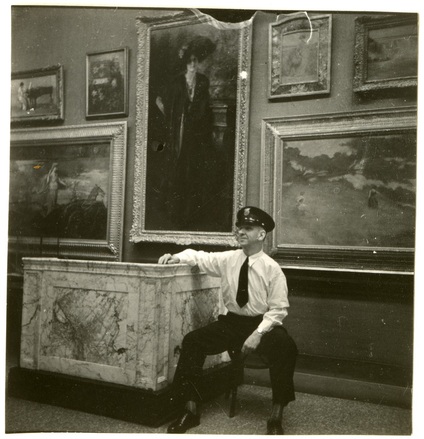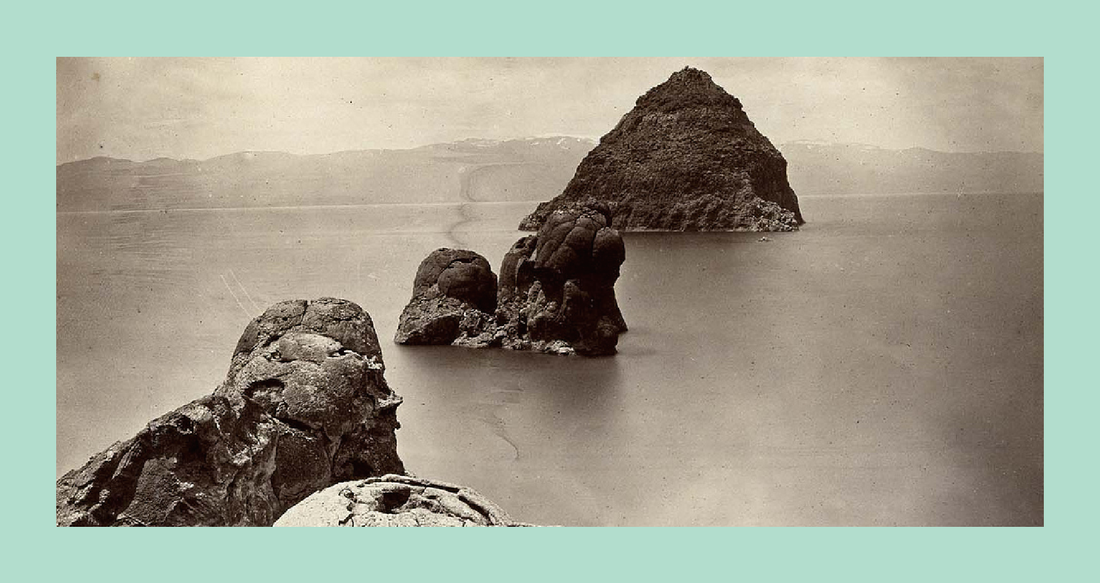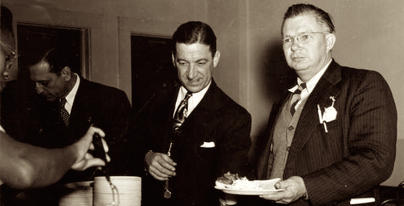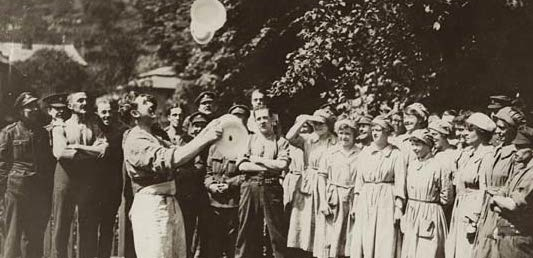ONE ACT PLAY - ISSUE FOUR
The Joys of Art
J.M VILLAVERDE
Title
The Joys of Art
Characters
Francis Falter, Head of the Secret Service, 61 years old
Jim Blankford, his Secretary, 34 years old
Both men are dressed in well-cut blue suits, but Falter is by far the more elegant. He sports a discreet, white pocket square, a dark tie over a white shirt, and a single pearl pinned to his tie. Blankford is also in a white shirt but without tie or pocket square.
Synopsis
Challenged in both his family and professional life, the head of the secret service takes action.
Black. Lights up suddenly. An art gallery. FALTER examines the paintings on display. He exudes an air of quiet authority, palpable and vaguely menacing. BLANKFORD is trying to resist the effects of tedium and unease as he follows FALTER from painting to painting. FALTER stops before a particular painting.
FALTER: Blankford, are you emitting a barely audible trill or is there a wasp in the room?
BLANKFORD: It’s my cell, sir. Vibrating.
FALTER: Do turn that thing off. I’ve never seen you quite so ill at ease.
BLANKFORD: I’m not in my element, sir.
FALTER: It’s essential to be at ease in the world, Jim. The world includes art galleries.
BLANKFORD: I was thinking about the new legislation.
FALTER: Yes, the government has adopted the mood of the times; it wants change. Wants it desperately.
FALTER moves to the next painting. BLANKFORD follows after some hesitation.
What do you think of these paintings?
BLANKFORD: Well, sir...
FALTER: You can speak freely. I know that you know this is my daughter’s work.
BLANKFORD: I’m not sure I understand them. I mean, I’m sure I don’t.
FALTER: Don’t you?
BLANKFORD: No, sir.
FALTER: Do you like them?
BLANKFORD: I don’t know much about this sort of thing.
FALTER: Can you imagine what a disappointing response that would be to the artist.
BLANKFORD: No, sir, I can’t imagine it.
FALTER gives him a searching look and moves to the next painting. BLANKFORD follows.
BLANKFORD: You were mentioning change, sir.
FALTER: Was I?
BLANKFORD: Just now.
FALTER: Must’ve been thinking aloud. Change, certainly. You can see it above all in her use of layering. Even from here, you can see the strata. It’s a new direction in her work; it comes right at you--
BLANKFORD: Mr. Falter, sir?
FALTER: Jim?
BLANKFORD: I meant a change in our operations.
FALTER: Yes, the Service. Always uppermost in your mind. The key to advancement. You’re interested in advancement, aren’t you?
BLANKFORD: In moving forward, sir.
FALTER: Let’s not quibble over words, Jim.
Pause
The Minister makes pompous speeches about openness and transparency in government, but this, in fact, is the preparatory stage for an attack on our sovereignty. The sovereignty of the Service. After decades of a harmonious and mutually beneficial arm’s-length relationship between us, the government now wishes to make us more accountable. To bring us to heel.
BLANKFORD: Your speech seems to be coming along.
FALTER: Yes, it is, Blankford. I don’t even need my notes any more.
Pause
Do you know what the Minister has suggested? Introducing me to the media. Isn’t that extraordinary? The man has clearly lost his bearings. Can you imagine? “Gentlefolk of the press, allow me to introduce our country’s head spook, Francis Falter.” What next, an “Annual Open-Door Day Behind Closed Doors”?
BLANKFORD: That’s coming. You can count on it.
There’s no indication that FALTER has heard this.
FALTER: Look at this profusion of colours and forms and texture and whatnot. So different from her previous work. What do you think she’s up to?
BLANKFORD: What do you intend to do?
FALTER: We must nip this in the bud. I will not meet the media. We will not give in to this mania for transparency. I have only two words for those in government who think they are our masters: Hands off!
They move to another painting.
What do you think, Blankford?
BLANKFORD: It won’t be that easy, sir. The government is wedded to the idea of openness.
FALTER: What do you think of this particular painting?
BLANKFORD: Hmm...
FALTER: I can see I have no hope of making an art critic out of you.
BLANKFORD: I’m afraid not, sir.
FALTER: Yet you seem possessed of the required keenness of mind. Again, look at the layering, the intricacy of interlacing levels, it calls not only to the eye, but to the hands. This is tactile art, Jim. It takes hold of you and doesn’t release its grip. This is art… at its most dangerous.
BLANKFORD: Dangerous, sir? Why?
FALTER: Because some things are not meant to be touched, are they?
BLANKFORD: Sir, I’m afraid I don’t see--
FALTER: In one unimaginable leap she has exploded the realm of the visual to encompass the palpable, the physical. It’s intrusive; it’s invasive; it’s disquieting. Do you see it, Blankford?
BLANKFORD: Ah...
FALTER: Yes, it almost leaves me speechless as well.
BLANKFORD: Sir, if we might come back to the matter at hand.
FALTER: It may be wiser to wait until we’re back in the office.
BLANKFORD laughs uneasily.
What is it?
BLANKFORD: Isn’t it safer here than in the office?
FALTER: And how do you come by this intelligence?
BLANKFORD: You insisted we come here.
FALTER: I thought it would do us some good to get out of the office. Even for a brief spell. I also thought I would introduce you to the joys of art.
BLANKFORD: I don’t follow you, sir.
FALTER: They are not what you might think.
BLANKFORD: Sir, art isn’t something I--
FALTER: A grave error on your part. Art can teach you a great deal about potential hazards.
BLANKFORD: Hazards, sir?
FALTER: Art is self-disclosure, Jim, whether intentional or not. It’s what makes it so parlous.
BLANKFORD: Sir?
FALTER: Parlous. Dangerous, precarious, treacherous.
BLANKFORD: For us?
Beat
FALTER: Especially us.
Pause
Has any of these paintings made an impression on you?
BLANKFORD looks at his watch.
BLANKFORD: Sir, we should be getting back. There was that briefing with the Minister.
FALTER: Surely, there’s more to life than briefings with ministers.
BLANKFORD: I don’t know if that’s true of our lives, sir.
FALTER: It saddens me to hear you say it.
Pause
But you’re right, we’ve lingered long enough. Go on ahead of me, Jim. Before you go...
FALTER produces a cheque which he hands to BLANKFORD.
Fill in the amount for that painting and hand the cheque to Ms. Grier. She is the owner of this establishment. You’ll find her sitting in her office by the entrance.
BLANKFORD: Sir?
FALTER: You’re looking at me as if you thought I were touched.
BLANKFORD: Touched, sir?
FALTER: You must must wonder why I insist on speaking an antiquated language to you. I blame it on my classical education. Touched. Mad. Round the bend.
BLANKFORD: I don’t think you’re mad, sir.
FALTER: Then please do as I say.
BLANKFORD studies the sign next to the painting, fills out the cheque, and exits. FALTER ceremoniously reaches into his pocket and produces a Swiss Army knife. He pulls out the largest blade and examines it. Slowly, he raises his eyes to the painting and approaches it with intent.
Fade to black.
J.M. Villaverde has one story collection (Dance of the Suitors) to his name, along with stories in Cerise Press, The Fiddlehead, The Antigonish Review, and The Malahat Review. Currently, he’s shuttling between Paristanbul Express and The Tangier Waltz, two novels-to-be.
NEXTPOETRY
|
RELATEDFICTION
|
POETRY
|
FICTION
|









